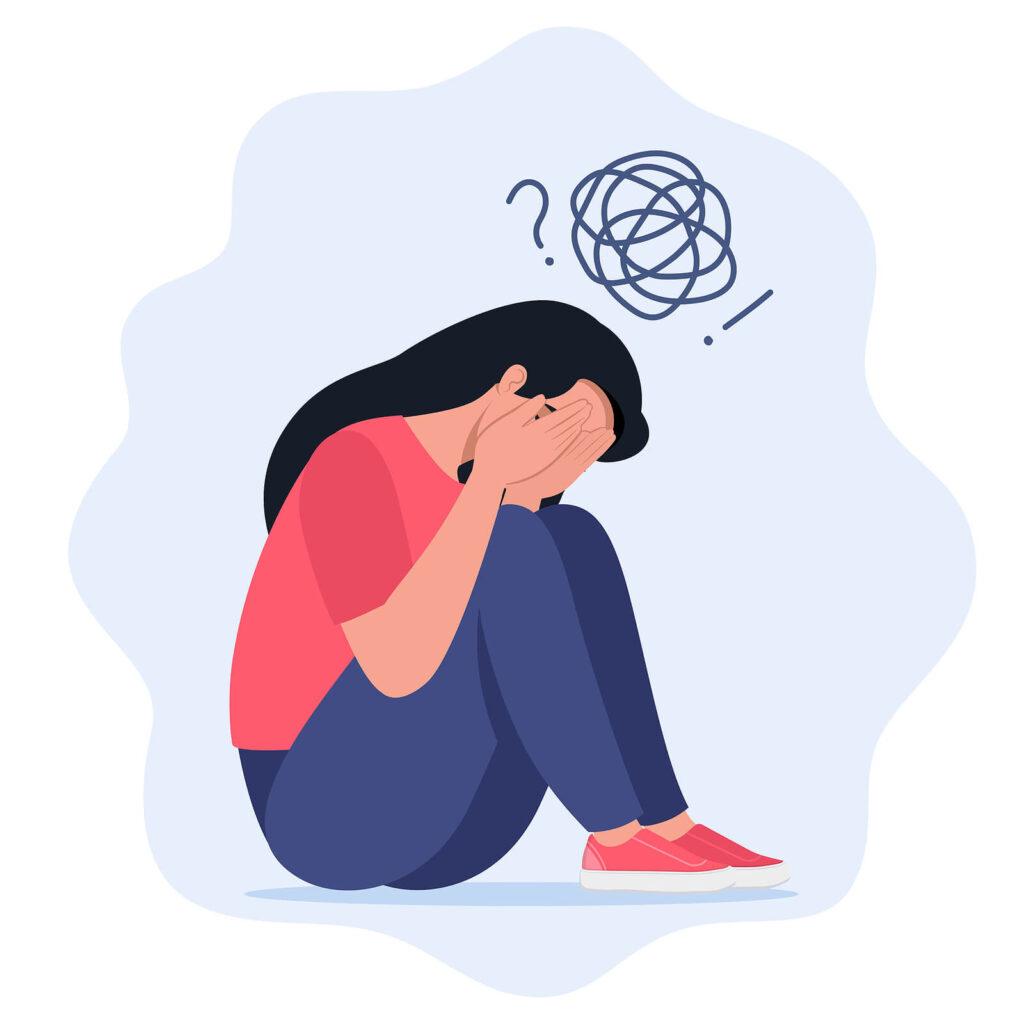Depression Treatment NYC – Antidepressants
Depression Treatment in NYC – How to Choose the Right Antidepressant
How does one choose the right depression medication treatment in New York City? What are the different classes of antidepressants? What are the side effects and risks of depression medication treatment in NYC? How about alcohol, substance abuse, and addiction as it relates to depression treatment and recovery? These are some of the questions addressed in this article about depression medication treatment in NYC.
What is depression?
What causes depression in your brain? Depression is caused by changes in the way neurotransmitters (chemicals that help carry messages between nerve cells) communicate with each other. Low levels of serotonin, norepinephrine and dopamine can lead to depressive symptoms such as sadness, low energy, lack of motivation, and poor concentration.
Depression is more than just a sad mood.
It is a complex medical disorder with a wide variety of potential causes, including genetic predisposition, personality traits, past trauma, lifestyle choices, and medical conditions. Depression can result in both physical and psychological symptoms which can include prolonged sadness, insomnia or excessive sleep, appetite changes, lack of energy and focus, difficulty with making decisions, feelings of hopelessness and helplessness, irritability, restlessness, aches and pains, thoughts of death or suicide.
Depression has a genetic component and is often seen running in families. Studies have also shown that untreated depression can worsen existing medical conditions, making the management of health issues more difficult. Depression also dramatically increases the risk of developing an addiction to alcohol or other substances.
Different classes of antidepressants are available to treat depression.
Selective Serotonin Reuptake Inhibitors (SSRI) such as Prozac and Zoloft work to increase serotonin levels while Serotonin-Norepinephrine Reuptake Inhibitors (SNRI) like Cymbalta and Effexor are used to increase serotonin and norepinephrine levels. In some cases, antipsychotics may be used to augment an antidepressant.
If you are struggling with depression it is important to seek professional help. A mental health professional will be able to evaluate your condition and determine the best course of treatment for you. Your treatment plan may include medication, talk therapy, lifestyle changes, and/or other interventions depending on your individual situation. With appropriate treatment, many people are able to manage their depression symptoms and live productive lives.
What are the different types of depression medication?
When it comes to treating depression, there are a variety of antidepressant medications available to choose from. These medications work by altering the levels of certain neurotransmitters in the brain, such as serotonin, norepinephrine, and dopamine.
The most commonly prescribed antidepressants belong to two different classes: Selective Serotonin Reuptake Inhibitors (SSRIs) and Serotonin-Norepinephrine Reuptake Inhibitors (SNRIs). SSRIs are used to treat major depression and are considered the first line of treatment for many individuals. Commonly prescribed SSRIs include Prozac, Zoloft, Paxil, Lexapro, and Celexa.
SSRIs work by blocking the reabsorption of serotonin in the brain, thus increasing the availability of this neurotransmitter. Increased serotonin helps to regulate mood and can improve symptoms of depression.
SNRIs are also used to treat major depression and are often used when SSRIs alone have not been successful in relieving symptoms.

Commonly prescribed SNRIs include Cymbalta, Effexor, and Pristiq. Unlike SSRIs, SNRIs also block the reabsorption of norepinephrine in addition to serotonin. The dual action of blocking both neurotransmitters can result in a stronger effect in managing depression symptoms.
Other medications that may be prescribed to treat depression include Wellbutrin and Remeron. Wellbutrin is an atypical antidepressant that works by blocking the reabsorption of dopamine. Unlike SSRIs and SNRIs, Wellbutrin has fewer side effects and is not associated with sexual dysfunction or weight gain.
Remeron is an atypical antidepressant that works differently than SSRIs and SNRIs by blocking serotonin receptors in the brain. Remeron is commonly used for those who suffer from major depression with anxiety symptoms. It has a sedating effect that can help relieve insomnia and fatigue associated with depression.
When it comes to finding the right antidepressant for you, it is important to talk to your doctor about which medications may be best suited for your particular needs and circumstances. Your doctor will also help you determine if any other treatments or lifestyle modifications should be implemented in addition to medication.
What are the side effects of antidepressants?
When considering treatment for depression, it is important to understand the potential side effects associated with different classes of antidepressants. SSRI and SNRI antidepressants are two of the most commonly prescribed types of antidepressants, and understanding their side effects can help you make an informed decision about your treatment.
SSRI (Selective Serotonin Reuptake Inhibitor) antidepressants are designed to increase levels of serotonin in the brain, which can reduce symptoms of depression. Common side effects of SSRI medications include nausea, weight changes, sleep disturbances, and sexual problems. Other potential side effects include dizziness, anxiety, headache, and fatigue.
SNRI (Serotonin-Norepinephrine Reuptake Inhibitor) antidepressants work to increase levels of both serotonin and norepinephrine in the brain, which can also help improve symptoms of depression. The side effects of SNRIs are similar to those of SSRIs, with potential side effects including nausea, dry mouth, increased sweating, sexual dysfunction, insomnia, agitation, and headache.
Wellbutrin is a unique type of antidepressant that works differently than SSRIs and SNRIs.
Its primary use is to treat depression, but it can also be used to help people quit smoking. Possible side effects include insomnia, nervousness, dry mouth, headache, nausea, constipation, and loss of appetite.
Remeron is another type of antidepressant that is used to treat depression. Common side effects include weight gain, drowsiness, dizziness, increased appetite, and difficulty sleeping. Other potential side effects include increased sweating, blurred vision, constipation, headaches, and changes in sex drive or performance.
Although antidepressants can have various side effects, many of these can be managed by working closely with your psychiatrist. It’s important to communicate any changes in your symptoms or the way you are feeling while on the medication to ensure that it is working correctly. With proper treatment and monitoring, you can find a medication that works best for you.
How Alcohol Addiction and Substance Abuse Worsen Depression
When it comes to depression, alcohol addiction and substance abuse can worsen the condition and lead to serious complications. People with depression are more likely to develop an alcohol addiction and/or other substance abuse problems, including cocaine addiction, cannabis, and marijuana addiction, stimulant addiction, opioid addiction, and pill addiction.
Alcohol is a depressant, meaning it can make depression symptoms worse. It can also interfere with the effectiveness of antidepressant medication, leading to further complications. In addition, heavy drinking can cause physical health problems that can further complicate depression symptoms.
Substance abuse can also make depression worse. For example, people who use marijuana are at risk for increased symptoms of depression. Stimulants such as cocaine can increase anxiety, which can also worsen depression symptoms. Opioids such as heroin can cause problems with sleep, appetite, and energy levels, all of which can exacerbate depression symptoms.

Having depression increases the risk of developing an alcohol addiction or other substance abuse problems. This is because people with depression may use alcohol and other drugs to self-medicate their emotional pain and distress. Substance abuse may also be seen as a form of escapism from dealing with life’s stressors and depression.
It is important to note that alcohol addiction and substance abuse are serious conditions that require professional treatment. If you or someone you know is struggling with alcohol addiction or substance abuse, seek help from a mental health provider or addiction specialist as soon as possible.
Begin Working With An Addiction Therapist in New York, NY
You shouldn’t have to struggle with depression and the risk of developing other addiction issues. As a psychiatrist in New York, NY I would be honored to offer support in helping you address addiction and other co-occurring issues. If you are ready to start your therapy journey at my Manhattan-based therapy practice, please follow these simple steps:
- Contact Stephen Gilman, MD
- Learn more about me and my approach
- Start receiving the support you deserve
Other Services Offered with Stephen Gilman, MD – Addiction Psychiatrist in NYC, Manhattan
Addiction treatment isn’t the only service I offer from my New York, NY-based therapy practice. I understand you may experience more than one mental health concern, which is why I’m happy to provide a variety of services including young adult psychiatry, adult psychiatry, and opioid addiction treatment. I’m also happy to offer prescription drug addiction treatment, cocaine addiction, meth addiction treatment, behavioral addiction treatment, PTSD treatment, drug addiction treatment, and marijuana addiction treatment. Learn more about me or visit my blog for more helpful info.




Trackbacks & Pingbacks
[…] disorder, ranging from antidepressants to anti-anxiety medications (benzodiazepines) and BuSpar, an anti-depressant that lacks the sedating qualities of benzodiazepines like Xanax and […]
Comments are closed.